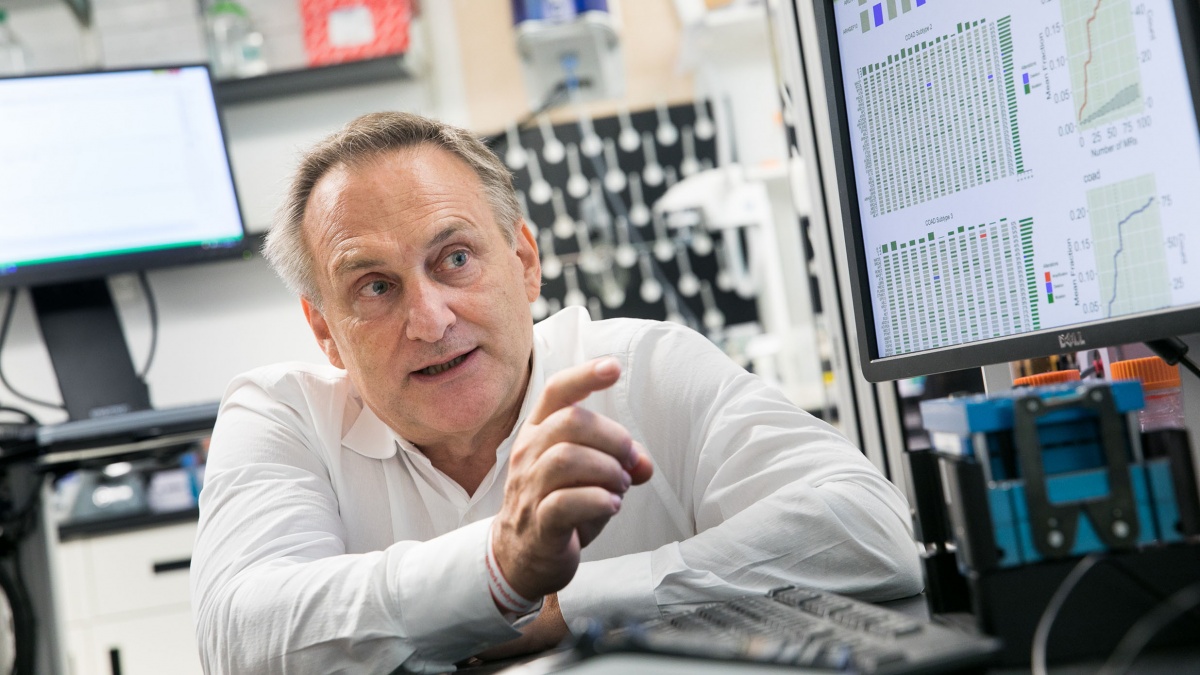News
Nature Showcases Precision Medicine Research led by the Califano Lab

Andrea Califano identifies 'master regulators' of cancer cells. (Credit: Tim Lee Photographers)
Genomics has revolutionized cancer research. Conventional classifications of disease, in terms of which organs and tissues it affects, are being divided into subtypes defined by the specific mutations that drive the disease. Some argue, however, that the impact on cancer care has not lived up to expectations. “Only about 5–10% of cancer patients derive any benefit from targeted therapy using genetics, and almost all of them eventually relapse,” says Andrea Califano , Dr, chair of the Department of Systems Biology at Columbia University Irving Medical Center. “The number that are actually cured is extremely small.”
Developing a genetically targeted therapy is no easy task. It can be tricky to identify which genetic mutations are driving the cancer and which are passengers — those that are statistically linked, but that do not cause cancer. And although developers of targeted therapies focus mainly on mutations to a subset of genes called oncogenes, there is more to malignancy. Read the full Nature Outlook article here .